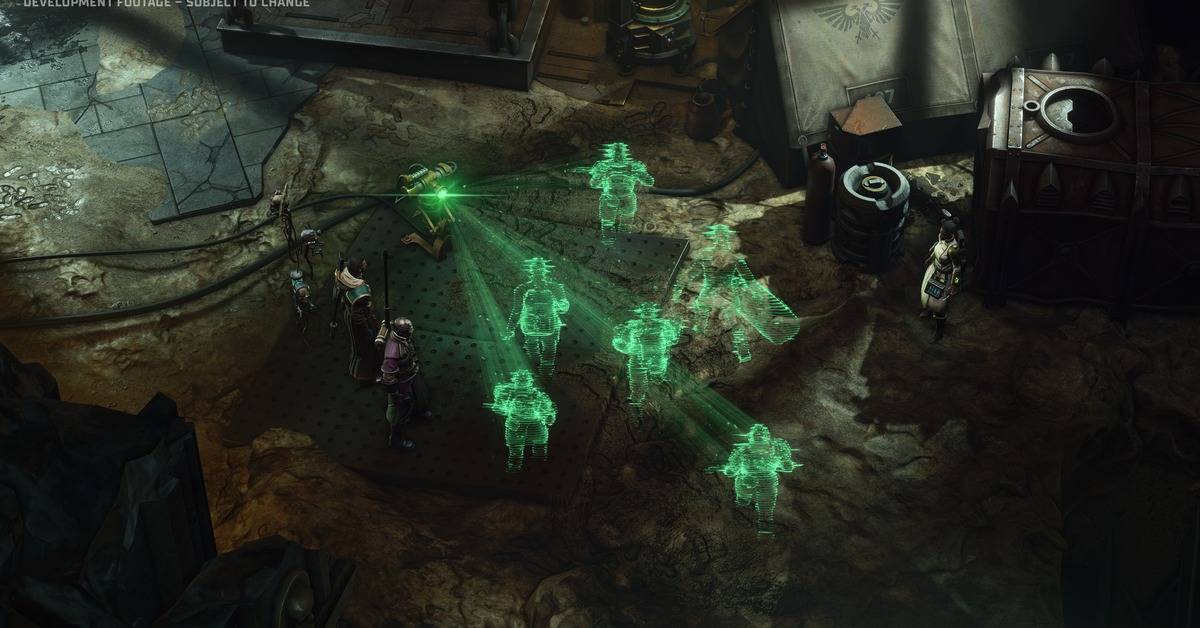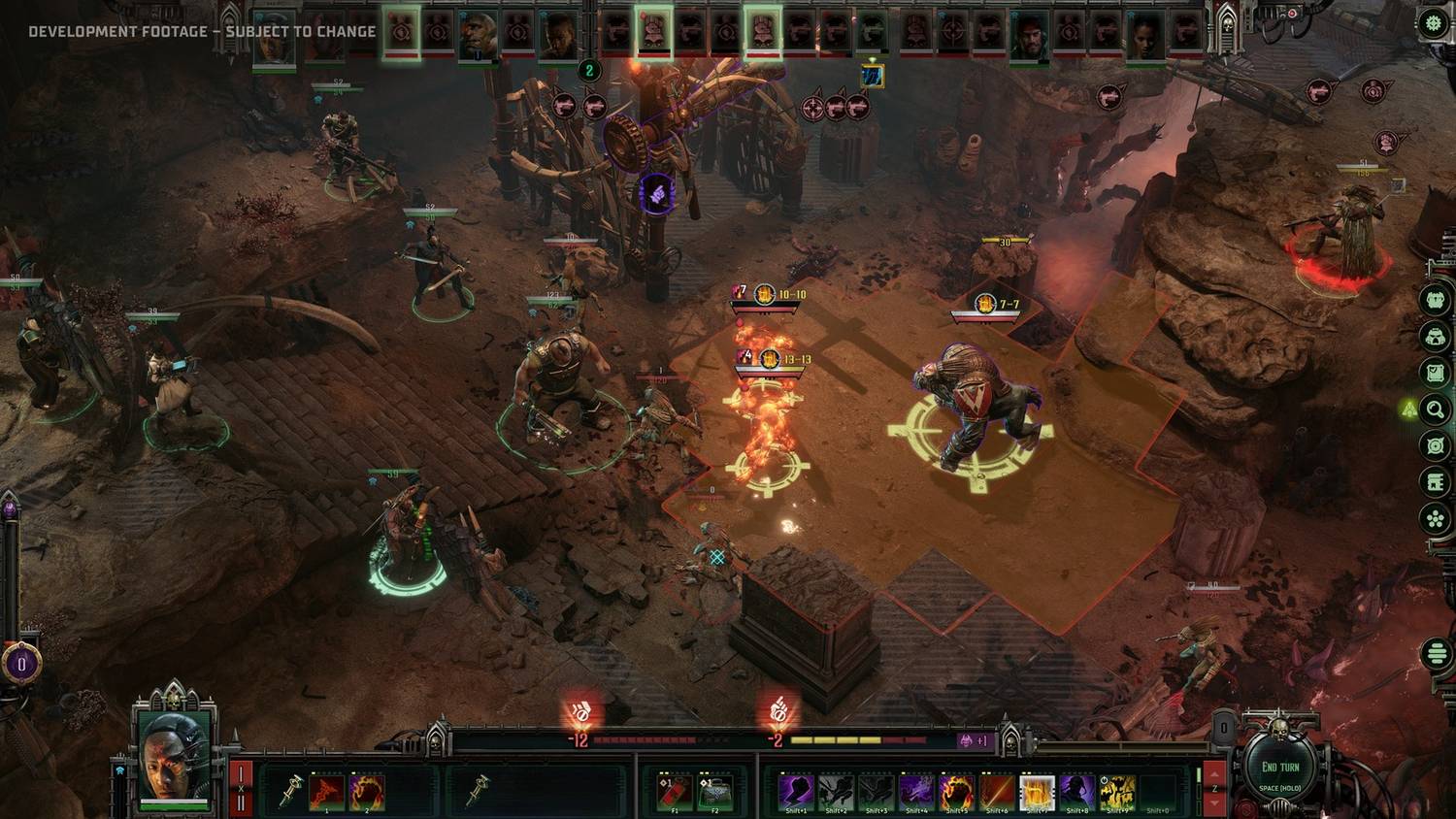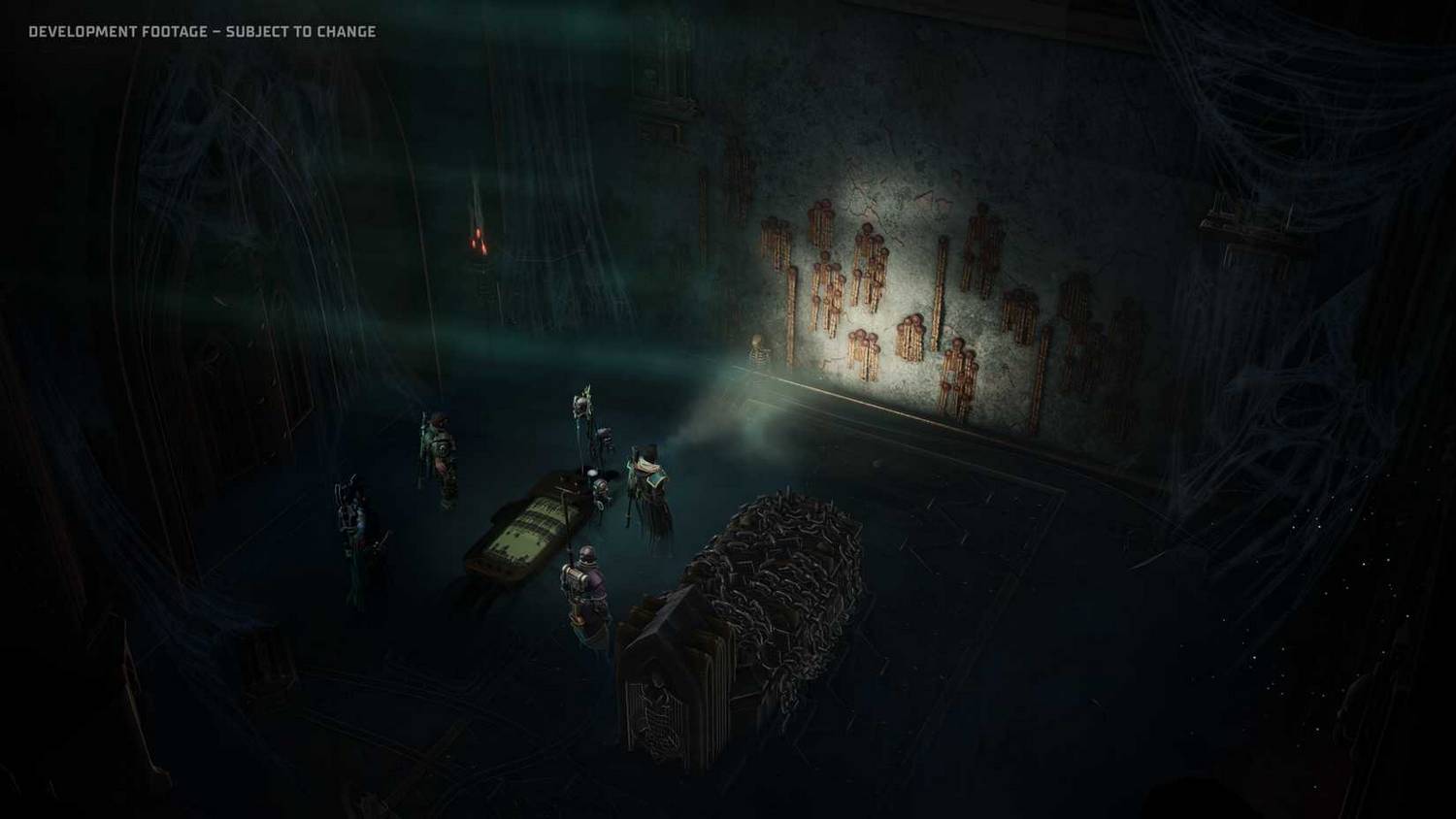In the Grimdark Future, There is Only the Truth You Make: Warhammer 40,000: Dark Heresy Delivers on a Promise of Moral Ambiguity
Popular Now
 Fortnite
Fortnite
 EMI Calculator App & Loan EMI
EMI Calculator App & Loan EMI
 Free Fire
Free Fire
 Gacha Club
Gacha Club
 Toca Boca World
Toca Boca World
 Auto X Drift Racing 3
Auto X Drift Racing 3
 R.E.P.O
R.E.P.O
 Warframe
Warframe
 Genshin Impact
Genshin Impact
 Rust
Rust
 Owlcat Games, the developer of the critically acclaimed RPGs Pathfinder: Kingmaker and Warhammer 40,000: Rogue Trader, has made a name for itself by creating sprawling, choice-driven experiences. With its latest title, Warhammer 40,000: Dark Heresy, which launched on September 25, 2025, the studio is tackling one of the most beloved and morally gray settings in tabletop gaming. The game, a turn-based RPG where you play as an Inquisitor’s Acolyte, is not a heroic power fantasy. Instead, it is a detective story where the truth is not a fixed, objective reality but a fragile construct that can be shaped, twisted, and even fabricated by your will. This central theme, which is a perfect reflection of the grimdark universe of Warhammer 40,000, is what sets Dark Heresy apart from its contemporaries and proves that Owlcat’s signature brand of deep, reactive storytelling is more potent than ever.
Owlcat Games, the developer of the critically acclaimed RPGs Pathfinder: Kingmaker and Warhammer 40,000: Rogue Trader, has made a name for itself by creating sprawling, choice-driven experiences. With its latest title, Warhammer 40,000: Dark Heresy, which launched on September 25, 2025, the studio is tackling one of the most beloved and morally gray settings in tabletop gaming. The game, a turn-based RPG where you play as an Inquisitor’s Acolyte, is not a heroic power fantasy. Instead, it is a detective story where the truth is not a fixed, objective reality but a fragile construct that can be shaped, twisted, and even fabricated by your will. This central theme, which is a perfect reflection of the grimdark universe of Warhammer 40,000, is what sets Dark Heresy apart from its contemporaries and proves that Owlcat’s signature brand of deep, reactive storytelling is more potent than ever.
The core of Dark Heresy’s narrative is its new “Investigation” mechanic. Unlike other RPGs where you simply follow a series of markers and talk to NPCs to find the “correct” answer, this game puts the burden of “truth” entirely on the player. You must investigate crime scenes, collect evidence, and interview suspects, but the game provides no “correct” solution. It is up to you to declare a suspect guilty or innocent and to present a convincing, or at least a plausible, case to your Inquisitor. The game’s narrative doesn’t stop if you falsely accuse an innocent person; it simply reacts to your choice. The accused will be executed, and the story will continue down a new, branching path. This level of player agency, where your decisions have immediate and long-lasting consequences, is both exhilarating and terrifying, and it’s a powerful tool for immersion.
 The Grey Zone: The Genius of the Investigation Mechanic
The Grey Zone: The Genius of the Investigation Mechanic
The investigation system in Dark Heresy is not just a mini-game; it’s a fundamental part of the game’s philosophy. It is designed to force players to live in the grim reality of the Imperium of Man, where justice is a luxury and a “convincing narrative” is often more important than the truth. Here’s what makes it so brilliant:
- No “Right” Answers: The game’s director, Anatoly Shestov, has been open about the team’s deliberate decision to avoid indicating whether player choices are “correct.” This aligns perfectly with the thematic moral ambiguity of the Inquisition. The player, as an Inquisitor’s Acolyte, is part of a secret police force with a single, brutal mission: to protect the Imperium from within. Whether a suspect is truly a heretic is irrelevant; all that matters is that you, as the Inquisitorial agent, declare them to be one. This creates a powerful tension where the player must constantly weigh the ethical implications of their actions against the cold, hard reality of their mission.
- Player as Detective and Judge: The investigation system is a true test of the player’s intelligence and role-playing ability. You must carefully examine every piece of evidence, from a suspicious-looking symbol on a wall to a line of dialogue from an NPC. You must then, using the game’s new “deduction” screen, connect these threads of events to build a case against a suspect. This system is a brilliant way to make the player feel like a true detective, but with a terrifying twist: you are also the judge, jury, and executioner. Your decision, no matter how flimsy the evidence, is the final word.
- The Consequences of “Justice”: The game’s narrative will branch based on your findings. If you execute an innocent person, their family and friends may become your new enemies, and the true culprit may escape to cause more chaos down the line. If you are too soft, you may be reprimanded by your Inquisitor. The game’s “Morale” system, which affects combat and dialogue, also plays a key role, as your actions can either inspire your party or cause them to lose faith in your leadership. These consequences, which are not just a simple “Good” or “Evil” point on a meter, make the world feel reactive and your choices feel meaningful.
 A Business and News Perspective: A New Benchmark for Narrative RPGs
A Business and News Perspective: A New Benchmark for Narrative RPGs
From a news and industry perspective, Warhammer 40,000: Dark Heresy is a significant development. In an era where many RPGs offer the illusion of choice without the substance, Owlcat is continuing its tradition of creating games where every decision, from a simple line of dialogue to a major plot point, has a real impact on the world. The game’s unique approach to morality and its focus on a less heroic, more morally ambiguous narrative is a clear sign that the studio is confident in its ability to create a compelling, character-driven experience that can stand on its own, even in a crowded market. The success of Dark Heresy will be a case study for the industry, proving that a well-written, reactive narrative, combined with a commitment to true player agency, can still be a powerful selling point. For fans of classic, story-rich RPGs, Dark Heresy is the game we’ve been waiting for. It is a true testament to the power of choice, and a brutal, beautiful reminder that in the 41st millennium, the truth is not a thing you discover; it is a thing you create.









